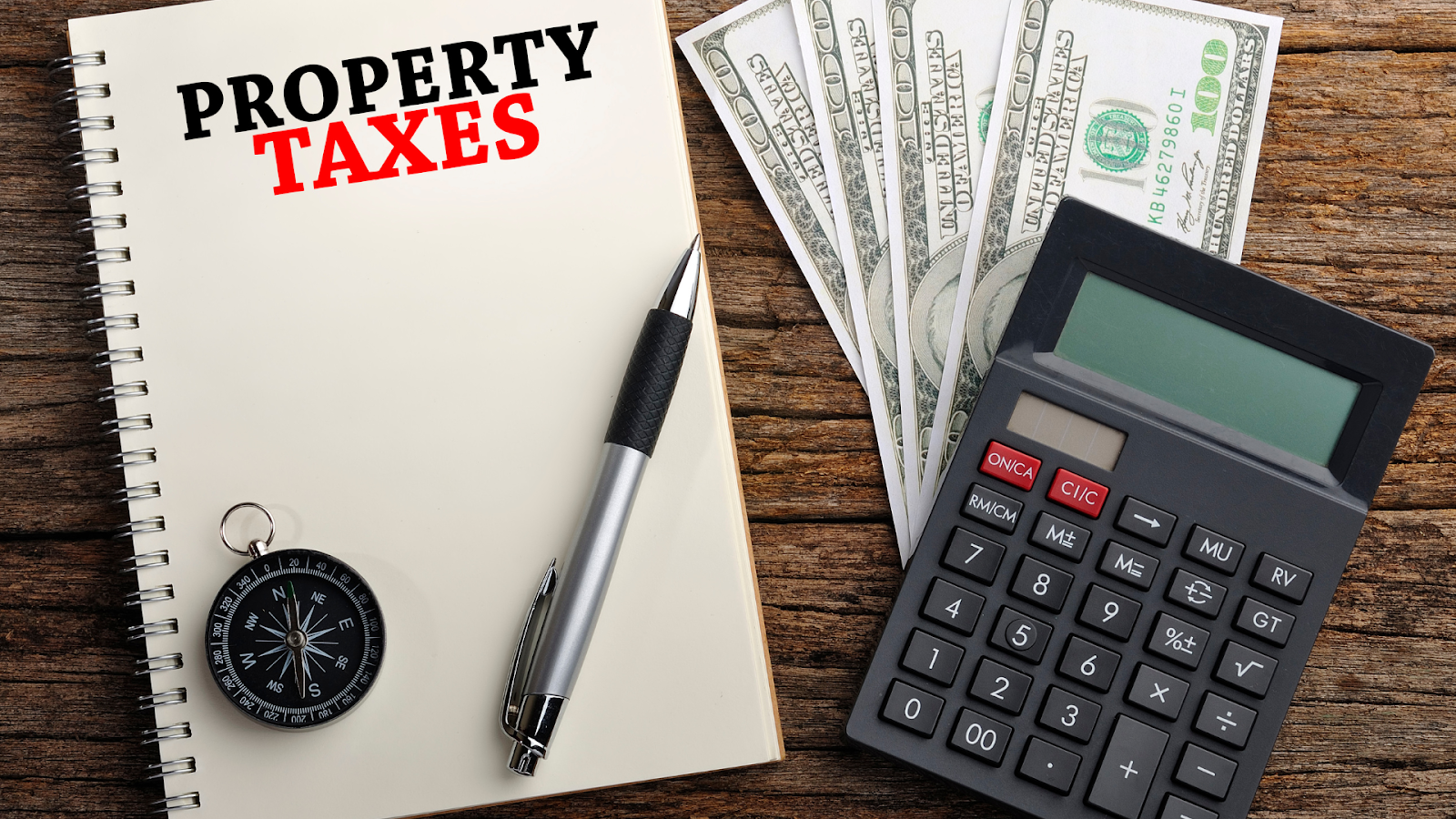A Guide To Property Taxes In Collin County
March 3, 2025
Key Takeaways:
- Property Valuation: The Collin Central Appraisal District (CCAD) assesses your property annually, but you can challenge an unfair valuation.
- Tax Reduction Strategies: Filing exemptions, correcting property records, and protesting overvaluations can help lower your tax burden significantly.
- No Upfront Cost: Icon Property Tax offers a zero upfront fee service, and you only pay if your property taxes are successfully reduced.
Are you paying too much in property taxes? Many Collin County homeowners do—often due to inflated property valuations. Overassessments lead to higher tax bills, costing property owners thousands each year.
Here at Icon Property Tax, we have collectively 30+ years of industry experience and have saved clients over $100 million by successfully challenging unfair property assessments. Our data-driven approach ensures you only pay what’s fair—with zero upfront fees and a no savings, no fee pledge.
In this guide, we’ll break down how Collin County property taxes work, why assessments may be incorrect, and how you can reduce your tax burden today.
Collin County’s Property Taxes
Property taxes in Collin County are a significant financial responsibility for homeowners and businesses. These taxes help fund essential services such as schools, road maintenance, emergency services, and community development. However, ensuring that you’re not overpaying on your property tax bill requires a clear understanding of how the system works.
At the heart of the property tax system in Collin County is the Collin Central Appraisal District (CCAD), which assesses property values each year based on market conditions, recent sales, and property improvements. Once your property is appraised, various taxing entities—including the county, school districts, and special districts—set their respective tax rates.
Your final tax bill is determined by multiplying your property’s appraised value by the applicable tax rates. For example, if your home is valued at $300,000 and the total tax rate is 2.0%, your annual property tax obligation would be: $300,000 × 0.020 = $6,000.
Determining Your Property’s Value
Each year, the Collin Central Appraisal District (CCAD) assesses property values based on recent sales, property characteristics, and market conditions. Factors such as your home’s size, location, and any improvements made can influence the assessed value. Since the real estate market fluctuates, these valuations don’t always align with actual property values, potentially leading to higher property tax bills than necessary.
If you suspect your property has been overvalued, you have the right to protest. Many property owners successfully reduce their tax burden by challenging inaccurate assessments. However, the appeal process requires strong supporting data, including comparable property sales and market analyses, which can be difficult to compile without professional assistance.
That’s where Icon Property Tax comes in. Our team of trusted local tax agents leverages advanced analytics and extensive experience to build a compelling case on your behalf. Plus, with our zero upfront fees, you only pay when you successfully save on your property taxes—it’s that simple.

How Property Taxes in Collin County Are Calculated
Understanding how property taxes are calculated in Collin County is crucial to ensuring that you’re not overpaying. The calculation involves two primary components:
- Appraised Value: Determined annually by the Collin Central Appraisal District (CCAD) based on market conditions, property characteristics, and comparable sales.
- Tax Rates: Set by various taxing entities, including school districts, county and city governments, and special districts. These rates are expressed as dollars per $100 of assessed value.
Example Property Tax Calculation
If your property is appraised at $300,000 and the combined tax rate is 2.0%, your tax bill would be: $300,000 × 0.020 = $6,000 (Annual Property Tax)
Exemptions That Can Reduce Your Tax Bill
Certain property tax exemptions can help reduce your taxable value, including:
- Homestead Exemption: Available to primary homeowners
- Senior Citizen & Disabled Exemptions: Reduces taxable value for qualified homeowners
- Agricultural or Timberland Valuations: For properties used primarily for agriculture or timber
Did You Know? Many property owners pay more than they should simply because they don’t appeal their tax assessments. Icon Property Tax helps you to avoid paying more than necessary—and you only pay us when you save!
Ways To Reduce Your Property Tax In Collin County
Property taxes can be overwhelming, but there are multiple ways to reduce your tax burden. Many homeowners overlook available exemptions, fail to protest incorrect valuations, or miss errors in property records. Here’s how you can ensure you’re not overpaying:
File for a Homestead Exemption
A homestead exemption lowers your taxable value, reducing the amount of property taxes owed. It applies only to your primary residence and offers significant savings, especially as property values rise. Homeowners must apply through the Collin Central Appraisal District (CCAD) to benefit.
Agricultural or Timberland Valuation
If your property is primarily used for agricultural or timber purposes, you may qualify for a special valuation that significantly reduces your taxable value. This valuation assesses land based on productivity rather than market price, making it a crucial tax-saving tool for rural property owners.
Protest Your Property Valuation
Property owners have the right to challenge unfair or inaccurate property assessments, which can lead to lower tax bills. Many homes are overvalued, increasing tax burdens unnecessarily. Filing a protest with Icon Property Tax ensures expert representation, data-driven analysis, and a fight for fair property assessment.
Review Your Property Record for Errors
Incorrect property details, such as inaccurate square footage or misclassified structures, can inflate your tax assessment. Reviewing your property records regularly helps identify discrepancies that might be increasing your tax liability. Icon Property Tax helps homeowners correct errors and secure lower tax assessments.
Why Choose Icon Property Tax?
Handling a property tax protest can be complex, requiring market research, legal knowledge, and negotiation skills. Icon Property Tax offers expert assistance with zero upfront fees, meaning you only pay if we successfully reduce your taxes. No Savings, No Fee – Simple As That!
Key Dates For Property Tax Payments
Understanding key property tax deadlines in Collin County ensures compliance and prevents unnecessary penalties. Missing deadlines can lead to additional fees and interest charges:
- January 1: Property values are assessed by the Collin Central Appraisal District (CCAD) based on market conditions, property details, and comparable sales.
- April 15: The CCAD sends appraisal notices, allowing property owners to review valuations and determine if an appeal is necessary for tax reduction.
- May 15: (or 30 days after receiving your notice) – The final deadline to protest an assessment if your property is overvalued, potentially lowering your overall tax liability.
- October 1: Property tax bills are officially issued, giving homeowners the opportunity to review and prepare for their upcoming payment obligations.
- January 31 (Following Year): The last day to pay property taxes without penalties. Late payments result in increasing interest charges and potential tax liens.
Our experts monitor deadlines, file protests, and negotiate assessments, fighting for fair taxation. No Savings, No Fee – Simple As That!

Final Thoughts
Navigating Collin County property taxes can be complex, but with the right approach, you can avoid overpaying. Understanding your property’s assessed value, leveraging exemptions, and filing a protest when necessary are key steps to reducing your tax burden. Many homeowners miss out on savings simply because they assume the process is too difficult—but it doesn’t have to be.
Icon Property Tax makes lowering your taxes effortless with zero upfront fees and a no-savings, no-fee pledge. Our trusted local tax agents handle everything, from reviewing your assessment to negotiating on your behalf. Take control of your property taxes today—only pay when you save!
Frequently Asked Questions About Property Taxes In Collin County
What is the property tax rate in Collin County?
Property tax rates vary across Collin County, as different cities, school districts, and special districts set their own rates based on their budget needs. To find the most accurate rate, check with the Collin County Tax Assessor-Collector’s office or review your annual property tax statement.
How is the value of my property assessed?
The Collin Central Appraisal District (CCAD) determines property values yearly using real estate sales, property conditions, and market trends. This assessed value directly impacts your tax bill, meaning an overvaluation could lead to excessive taxation that you have the right to dispute.
When are property taxes due in Collin County?
Property taxes in Collin County are due by January 31 of the following year. If unpaid by this deadline, penalties and interest begin accumulating, increasing your overall tax liability, making timely payments essential to avoid unnecessary financial burdens and legal complications.
What happens if I don’t pay my property taxes on time?
Missing your tax payment deadline results in penalties, interest, and potential legal consequences. Overdue taxes may lead to a tax lien on your property, which, if left unresolved, could ultimately result in foreclosure proceedings initiated by the county to recover unpaid amounts.
Can I protest my property tax assessment?
Yes, you can protest your tax assessment if you believe it is inaccurate or inflated. The deadline to file a protest is May 15 or 30 days after receiving your appraisal notice, allowing homeowners to ensure they are taxed fairly each year.
Do I have to pay anything upfront for a property tax protest?
No, Icon Property Tax requires zero upfront costs and operates on a performance-based fee structure. You only pay if we successfully reduce your tax bill, ensuring that homeowners can challenge excessive valuations without financial risk or unnecessary stress.

